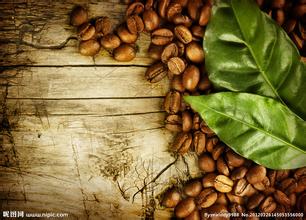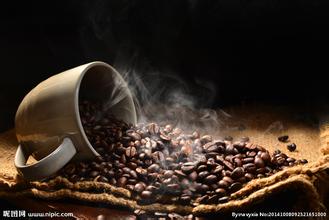Sweet and smooth Coffee Bean planting Base Map location conditions Brand Taste and Flavor description method
Introduction of Brazilian Coffee beans
Brazilians love coffee and are good at drinking coffee. Coffee with hot milk is a traditional breakfast drink throughout Brazil. Brazilians call breakfast "morning coffee" (cafedamanha). They drink coffee before going to work, during meetings, and often stand in front of a street cafe for a drink when walking down the street. In short, coffee is an indispensable source of energy for most Brazilians. Small black coffee, dark color, strong flavor, mellow and delicious, it is best to add a little more sugar, as the Brazilian folk song sings: "Coffee must be as black as the devil, as hot as hell, as pure as an angel, as sweet as love." When you come to Brazil, don't forget to taste the delicious "Coffee Sinio." Brazil is the world's largest coffee producer. But Brazil originally did not produce coffee. Coffee originated in Arabia and was introduced into Europe in the 18th century and was very popular. Later, the French specially shipped the coffee saplings to French Guiana, which was finally introduced into Brazil, and finally carried forward in Brazil. Don't forget the famous coffee in Brazil. Buying a few bottles and sending them home will be popular. Supermarkets and bakeries sell roasted and ground coffee, vacuum packaged products can keep fresh for a long time, or paper bags of coffee can be bought at the airport.
Including all coffee beans grown in Brazil, except for Santos, Brazilian beans are mostly "cheap and good" coffee. Can be used for mass production of comprehensive coffee beans, most of which are re-roasted. The main raw material of instant coffee is also Brazilian coffee beans. When the coffee bean germ is very fresh, it is artificially refined and naturally dried in the vulva for about 60-70 days, so that the sweetness of the pulp fully infiltrates into the bean. Features: coffee beans have a strong aroma, moderate bitterness, high texture acidity, soft overall taste, low acidity and endless aftertaste. The taste of Brazilian coffee has a low sour taste, with the sweet and bitter taste of coffee, the entrance is very smooth, but also with a hint of grass aroma, slightly bitter in the fragrance, smooth and smooth, with a pleasant aftertaste. There are no particular advantages for Brazilian coffee, but there are no obvious drawbacks. Brazilian coffee generally refers to coffee produced in Brazil with a mild and smooth taste, low acidity and moderate mellowness. There is a wide variety of Brazilian coffee, the vast majority of which are unwashed and sun-dried, classified according to the name of the state of origin and the port of transport. Brazil has 21 states and 17 states produce coffee, but four of them produce the largest, accounting for 98% of the country's total output. Brazilian coffee has a low sour taste, with the sweet and bitter taste of coffee, the entrance is very smooth, and with a hint of grass aroma, slightly bitter in the fragrance, smooth and smooth, the aftertaste can make people lively and pleasant Brazilian coffee generally refers to the coffee produced in Brazil. There are many kinds of coffee in Brazil, most of which are unwashed and sun-dried, and are classified according to the name of the state of origin and the port of transport.

Important Notice :
前街咖啡 FrontStreet Coffee has moved to new addredd:
FrontStreet Coffee Address: 315,Donghua East Road,GuangZhou
Tel:020 38364473
- Prev

Introduction to the grinding scale of the flavor description method for the aroma-rich Arabian coffee bean manor.
The aroma-rich Arabian coffee bean manor area flavor description processing method grinding scale introduction from the collection of coffee beans to processing into finished products, coffee has been kept free from soil and other sundries to ensure taste and quality; second, graded collection: since coffee beans are not uniform and mature, coffee beans of the same level are collected centrally rather than mixed together
- Next

Unique floral fragrance of rose summer coffee beans in Panamanian jadeite manor taste and flavor description treatment
Description of taste and flavor of rose summer coffee beans in Panamanian jadeite manor there is a bean with high performance-to-price ratio in the land of Pokuit. And has a very beautiful name Flower Butterfly. She has 40% high-quality Rosa pedigree, composed of Rosa, Kaddura and Kaduai, planted in the Baru volcano region of Pokut, growing at 1600 meters above sea level.
Related
- Detailed explanation of Jadeite planting Land in Panamanian Jadeite Manor introduction to the grading system of Jadeite competitive bidding, Red bid, Green bid and Rose Summer
- Story of Coffee planting in Brenka region of Costa Rica Stonehenge Manor anaerobic heavy honey treatment of flavor mouth
- What's on the barrel of Blue Mountain Coffee beans?
- Can American coffee also pull flowers? How to use hot American style to pull out a good-looking pattern?
- Can you make a cold extract with coffee beans? What is the right proportion for cold-extracted coffee formula?
- Indonesian PWN Gold Mandrine Coffee Origin Features Flavor How to Chong? Mandolin coffee is American.
- A brief introduction to the flavor characteristics of Brazilian yellow bourbon coffee beans
- What is the effect of different water quality on the flavor of cold-extracted coffee? What kind of water is best for brewing coffee?
- Why do you think of Rose Summer whenever you mention Panamanian coffee?
- Introduction to the characteristics of authentic blue mountain coffee bean producing areas? What is the CIB Coffee Authority in Jamaica?

